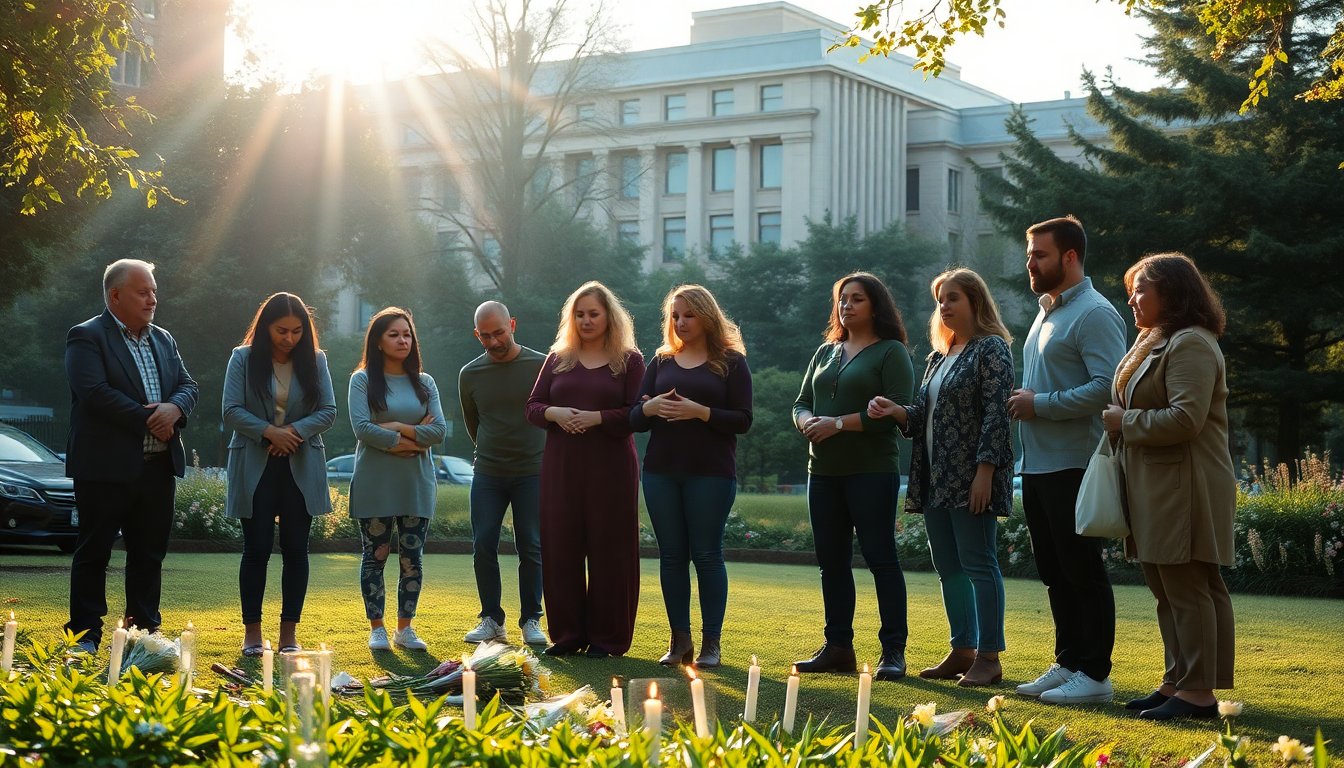Table of Contents
In the wake of tragic events, society often grapples with harsh realities, questioning the nature of evil and the importance of community support. The recent shooting incident at Utah Valley University, which resulted in the death of conservative influencer Charlie Kirk, has ignited significant discussions about the values that unite us in times of crisis. Tim Tebow, a former NFL star known for his faith and community engagement, expressed his thoughts on social media, highlighting that evil is a tangible force in our lives. Yet, amidst this darkness, a flicker of hope persists, rooted in faith and community.
The Recognition of Evil in Society
Tebow’s remarks serve as a reminder that acknowledging the existence of evil is essential for understanding the challenges we face as a society. He stated, “Evil is real. There is no doubt, the enemy is hard at work.” This assertion resonates deeply, especially in a nation that has experienced its share of violence. Recognizing evil not only acts as a warning but also serves as a rallying point for those seeking to counteract its effects through positivity and compassion.
In the aftermath of Kirk’s tragic death, many—including Tebow—have called for unity and support for the victim’s family. His expression of grief, describing himself as “shocked and devastated,” underscores the communal impact of such events. It is crucial to remember that behind every statistic of violence lies a human story, a family shattered, and a community shaken. This collective grief can often act as a catalyst for societal reflection and action.
Community Response and the Role of Faith
During these challenging times, the role of faith often emerges as a beacon of hope. Tebow’s commitment to prayer for Kirk’s family illustrates how individuals turn to their beliefs for solace and strength. He stated, “Until then, we pray. We weep with those who weep. And we keep fighting, knowing the victory has already been won.” This perspective promotes a proactive approach to grief, transforming it into a means of inspiring others to join in the fight against despair.
The community’s response to such tragedies reveals the resilience of the human spirit. Many individuals take to social media to share condolences, memories, and messages of support, creating a virtual solidarity that connects people across distances. This communal grieving process not only honors those lost but also reinforces the values of compassion, love, and support that are essential in overcoming adversities.
Looking Forward: Building a Stronger Society
As we reflect on the lessons learned from the loss of individuals like Charlie Kirk, it becomes evident that the path forward lies in fostering a culture of empathy and understanding. This tragedy serves as a reminder that societal values must be continuously nurtured through community engagement and dialogue. Addressing the underlying issues contributing to violence, while promoting education, mental health support, and open discussions about societal challenges, is imperative.
Moreover, fostering a sense of belonging and community can help mitigate feelings of isolation that often accompany such tragedies. Encouraging individuals to come together, share experiences, and support one another can create a more resilient society. In doing so, we honor the memories of those lost while working toward a future where such violence becomes increasingly rare. Ultimately, the call to action lies in our collective ability to respond to evil with goodness and to transform tragedy into a foundation for stronger communities.


